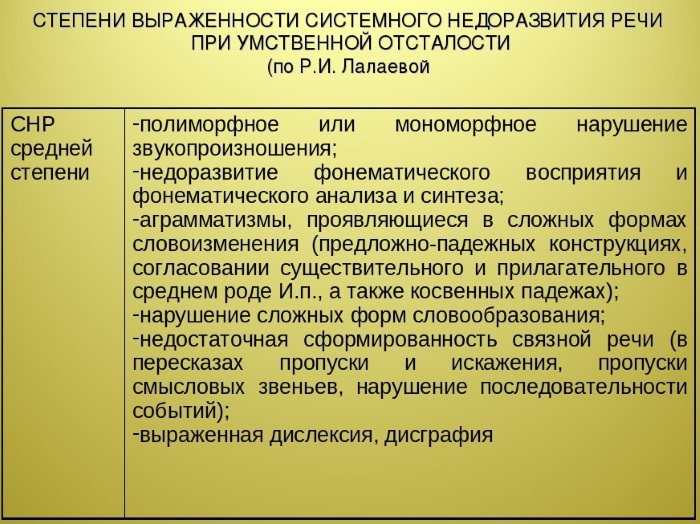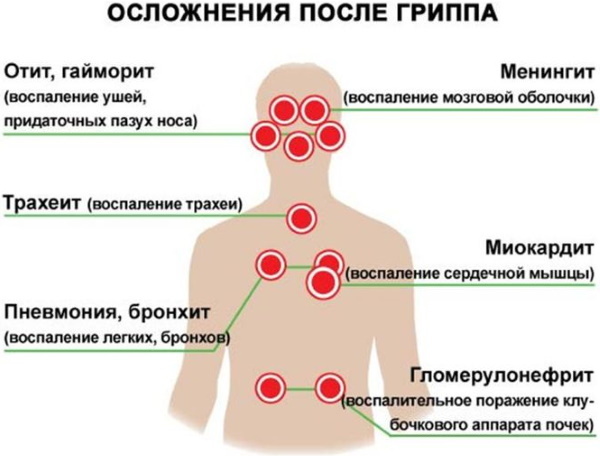For the diagnosis of viral and bacterial diseases, doctors prescribe blood tests, and if the child has elevated white blood cells, it suggests that the inflammatory process in the body has begun.
The content of the article:
- 1 The role of lymphocytes
- 2 types of lymphocytes
- 3 Of lymphocytosis symptomatology in children
- 4 Reasons for the increase of lymphocytes in the child
- 5 Infectious-inflammatory processes
- 6 Lymphocytosis infectious nature
- 7 Congenital particular organism
- 8 malignant lymphocytosis
- 9 Non-infectious causes of increasing lymphocyte
- 10 Lymphocytosis with allergies
- 11 Lymphocytosis during chemotherapy
- 12 Increased lymphocyte teething
- 13 Norma lymphocytes, depending on the age of the child
- 14 How to identify elevated levels of lymphocytes in the child
- 15 In some cases, the cells raised against decrease of neutrophils
- 16 Video of lymphocytes increased in a child
The role of lymphocytes
Lymphocytes - are the main cells of the lymph (a special liquid, washing all the cells and tissues of the body) to ensure long-term operation of immunity. The main role of lymphocytes is to protect tissues from foreign bodies. These cells control the formation of specific antibodies that inhibit proliferation of pathogens.
Due to the regulation of other cells involved in the destruction of a variety of fungi, bacteria or viruses, lymphocytes are capable of improve cellular and humoral immunity, are responsible for maintaining the normal functioning of all organs and systems body.
Changing the number of lymphocytes negative impact on the formation of the baby's immune system.

Lymphocytes increased in a child - a signal that the body began the growth of pathogenic body that trigger the start of infection, viral or bacterial nature. When inflammation of the lymphocytes belonging to species of leukocytes (blood cells), promote the uptake and digestion of foreign elements.
If the number of elements increases, the bone marrow produces an additional quantity of lymphocytes and other protective cells, and sends them to the site of inflammation. Their number is reduced by the strong impact of viruses and bacteriaAnd whereas immunity can not fully fight the infection. In this case, doctors determine the type of pathology and prescribe appropriate treatment.
types of lymphocytes
Depending on their functions are distinguished 3 types of lymphocytes:
- B-cells. They have the ability to recognize alien organisms producing specific protein structures that are aimed at the destruction of the pathogen.
- T cells. These include T-killers (Eng. kill - kill) and T-helper cells (Engl. help - help), T-suppressor (Eng. suppress - repress). They focused on the regulation of the immune system by stimulating or suppressing production of antibodies.
- NK-cells determining possess action. These cells are responsible for the quality of the cells, destroying other cells, which differ in their properties to normal cells.

Most of the body's T-cells, they represent about 65 -75% of all cells.
Of lymphocytosis symptomatology in children
Lymphocytosis - a concept that characterizes the high content of lymphocytes in the blood.
He is of two kinds:
- Reactive. In this case, the excess lymphocyte reaction is a natural immunity to microbial hearth caused due to external impact.
- Malignant. Characterized internal bone marrow disorders.
Formed under external influence and viral respiratory infections, bacterial infections, fungal or parasitic disease.
When lymphocytosis in children most often have symptoms of acute respiratory diseases:
- Increased body temperature.
- Swollen lymph nodes.
- A sore throat.
- Nasal discharge.

- Thick discharge in the nasopharynx.
The presence of bacterial intestinal infection at a higher level of lymphocytes cause the following symptoms:
- Pain in the abdomen.
- Diarrhea.
- Vomiting.
- nausea feeling.
In children, there is a general weakness of the organism, which is accompanied by crying, sleep disorders, and nervous behavior. In some cases, lymphocytosis causes a decrease in body weight of the child. Symptoms vary depending on the type of the disease, which led to the development limofitoza.
Reasons for the increase of lymphocytes in the child
Causes of lymphocytosis children develop either immediately after birth or during the first years of life.
Distinguish 4 types of reasons:
- infectious and inflammatory nature;
- domestic nature;
- external character;
- malignant.
The infectious nature of leukocytosis includes:
- Viral disease (whooping cough, chickenpox, measles).

Lymphocytes increased the child can testify to chickenpox. - Respiratory diseases (bronchitis, laryngotracheitis, tonsillitis and others).
- Parasitic disorders (presence of worms).
- Bacterial infections (intestine, blood, respiratory tract and skin).
The internal character is caused by disruption of the body under the influence of its features:
- Autoimmune disorders.
- Hormonal disbalance.
- Increased sensitivity to many products.
The most common external causes in children are:
- The consequences of surgery.
- Exposure to radiation.
- Fasting during childbirth and the first few days after birth.
Lymphocytes increased in the child and in the rare event of malignant cells:
- Thymoma (tumor in the chest).
- Lymphoma (spread of tumor lymphocytes to all organs).
- Leukemia (blood cancer).

Lymphocytosis in the child is also observed at a constant inhalation of nicotine (if parents smoke) or by ingestion of alcohol in the body of the child in the womb.
Infectious-inflammatory processes
Inflammatory processes in the body are caused by reaction of the internal tissue to pathogenic stimuli. Infectious inflammatory foci represents the accumulation and propagation of harmful bacteria and microbes that cause inflammation and contribute to increase the level of immune cells, including lymphocytes.
Typically, accumulation of pathogenic organisms resulting in damage to body tissues in which they are developing.
The presence of lymphocytosis in the blood and a thorough check of possible diseases will help to quickly cope with a focal infection. In children, these processes often occur in the upper and lower respiratory tract, with untimely treatment, they can lead to more serious problems.
Lymphocytosis infectious nature
Infectious processes in children are among the most common causes of increased lymphocytes. Their abundance is also the result of biological inflammation in the body, which has a negative effect on the immune system. Such diseases arise against the appearance of virus in the body, as well as all sorts of bacteria, affecting various organs of the human body.

In some cases, lymphocytosis observed in children with lesions of the oral cavity by a fungus that is manifested in the form of candidiasis and thrush. Often, the presence of domestic animals, excess lymphocytes is indication of the presence of worms, that cause intoxication internal parts of the body.
In these cases, lymphocytes are elevated, and the doctor prescribes the appropriate treatment aimed at reducing toxins and maintaining the immune system.
Congenital particular organism
Everyone has their own characteristics of the immune system, and in some cases it has an autoimmune cause lymphocytosis. In this case, the disturbed functioning T-cells, which begin to struggle with their own tissues perceived as pathogenic. This often leads to the defeat of the entire system of the body and lymphocytosis.
Hormonal failure may also lead to an increase in lymphocytes.
The endocrine system works in tandem with the immune system, it is a source of T-cells and specific hormones involved in establishing the defense. Changing the number of hormones due to problems with the endocrine glands affect the level of lymphocyte formation.

At birth, it also happens that a child is found hereditary pathology of internal organs or bleeding inside, in this case cells increased and talk about the urgent need to intervention.
malignant lymphocytosis
Malignant lymphocytosis is manifested in the form of leukemia - cancer of the blood. It is characterized by an increase in the formation of white blood cells and other immune cells in the bone marrow, which grow in small clusters of tissue (tumor) and gradually replacing the bone marrow itself. This leads to a decrease in production necessary for the circulatory system of red blood cells and platelets.
Disrupted supply of nutrients to the important parts of the body. In this case, there is an inflammatory process and increases tissue levels of lymphocytes, designed to combat a pathology.

In leukemia cell growth produced hidden manner, and it is only noticed at the manifestation of serious symptoms. Therefore, when lymphocytosis need to carefully diagnose the cause, and to exclude premalignant neoplastic condition.
Non-infectious causes of increasing lymphocyte
Non-infectious causes of inflammation characterized by the presence within the body caused by different kinds of injuries or substances. They often contribute to the lymphocytes, which are aimed at maintaining a weakened organism.
Such processes are of different nature:
- Physical.
- Chemical.
- Biological.
Physical causes in children may include:
- Obtaining a thermal burn.
- Open wounds and fractures due to trauma.
- skin frostbite.

- Surgery, leading to internal bleeding.
The causes of inflammation are characterized by chemical poisoning or special household chemicals due to negligence adults. Poisoning Children chemicals causes severe intoxication, and interferes with the normal functioning of the immune system, which actively produce lymphocytes. Biological cause inflammation of a variety of infectious microorganisms.
Lymphocytosis with allergies
Lymphocytes increased in child and due to the possible presence of allergens in the blood. food and various medicines contain substances that are perceived positively by many. But sometimes, a substance taken by the immune system in an unusual manner - it happens sensitization.
This concept includes a process of increasing the sensitivity to the effects of stimuli by accumulating a specific antibody (immunoglobulins IgE), specific allergen. At the same time stimulates the production of lymphocytes, which are distributed along the walls and slimy bodies, protecting them from re-exposure.

Frequent and repeated use of the allergen leads to tissue inflammation and organ disorders. At elevated lymphocytes in children is recommended to immediately seek medical attention to determine the cause of possible allergies and to prevent the possible consequences.
Lymphocytosis during chemotherapy
In medicine, there are a number of diseases, which include the treatment of chemotherapy. Despite the effective action, it reduces the efficiency of the circulatory system, reducing the number of white blood cells, including lymphocytes. This blood pathology called lymphopenia and leads to a significant deterioration of the immune system.
Simultaneously broken supply nutrients in the human nervous system, resulting in symptoms such as:
- Lethargy.
- Impaired concentration and memory.
- Headache.
Therefore, chemotherapy includes contraindications, it can not be used as a method of treatment for:
- reduced platelet counts;
- chronic liver and kidney disease;
- immune deficiency;
- insufficient level of hemoglobin;
- and there are signs of malnutrition;
- anemia.

Treatment chemicals includes continuous monitoring of blood tests at elevated lymphocytes recommend terminate such treatment.
Increased lymphocyte teething
When the first signs of the appearance of a tooth, the child's immune system is considerably weakened and becomes susceptible to all sorts of viral and bacterial diseases. This occurs when a natural inflammatory process at the site of the eruption, and the immune system directs all his strength just to this area, increasing the level of protective cells.
Also badly chewed food, and food containing harmful substances, negative impact on the process of digestion.
Through soft and damaged gum tissue can penetrate the bacteria and viruses that trigger the development of a new inflammatory focus in the respiratory tract or intestine. Occurrence rhinitis on this background may be a natural process that contributes to an increase in mucus production, which accelerates the appearance of the tooth gum.

The combination of these factors leads to the fact that the immune system can not cope with the performance of all its functions and reduces the effectiveness of the protection of the organism. Lymphocytes increased the child teething in most cases. At the same time there are symptoms of colds or intestinal diseases, which arise due to a weakened immune system activity.
Norma lymphocytes, depending on the age of the child
Norma lymphocytes depends on the age of the child and its individual characteristics at birth.
The main indicators are presented in the table below:
| Age of the child | LYM norm in% | LYM norm absolute number in 1 L of blood (cells / liter). |
| 1 day | 12-36 | 2 — 11 * |
| 1 month | 40-76 | 2 — 11 * |
| 6 months | 42-74 | 2 — 11 * |
| up to 1 year | 42-76 | 2 — 11 * |
| 1-2 years | 26-60 | 3 — 9,5 * |
| 2-4 years | 26-60 | 2 — 8 * |
| 4-6 years | 26-60 | 1,5 — 7 * |
| 6-8 years | 24-54 | 1,5 — 6,8 * |
| 8-10 years | 24-54 | 1,5 — 6,5 * |
| 10-16 years. | 22-50 | 1,2 — 5,2 * |
| 16 years | 30-50 | 1,0 — 4,8 * |
For detailed analysis of decoding is necessary to consult a doctor, as if a child has increased lymphocytes, it is is a sign of the presence of inflammation in the body and only timely treatment will lead to a complete recovery.
How to identify elevated levels of lymphocytes in the child
Common blood tests are necessary to take an adult once every 3 months, in order to prevent hematopoietic disorders and other diseases. In infants tests shall every three months, in order to avoid delays in treatment.

Analyzes of the children can be taken free of charge, in many medical centers present blood collection service with leukocyte formula.
Such an analysis is a detailed examination of quality and composition of blood, in which the determined percentage of all blood parameters. Before commissioning the analysis is necessary not to eat for at least 5 hours to avoid exercising and smoking, as well as in any case do not take alcoholic products.
When interpreting blood tests in children, it must be remembered that neonatal initially observed low number of lymphocytes. This is due to the start of the immune and endocrine systems, which, according to their formation generating lymphocyte count is several times greater than that of an adult.
When interpreting the results, a table of standard values lymphocyte levels are indicated next to their reduction - LYM or LYMPH.
WBC allows doctors to determine the approximate cause of the disease and the type of infectious germs:
- The increased number of lymphocytes together with eosinophils indicates the presence of inflammation or allergic parasitic diseases.
- Increase count and erythrocyte sedimentation rate (ESR), indicates the presence of acute and chronic diseases (renal anemia, or more often).
- With an increase of lymphocytes and monocytes simultaneously determined the viral nature of the disease (chickenpox, smallpox, measles, herpes, and others).

With the help of this analysis, the doctor prescribes the appropriate treatment and the child picks up the products aimed at each type of pathogen disease.
In some cases, the cells raised against decrease of neutrophils
Special attention is paid to the case of an excess amount of lymphocytic cells against decrease of neutrophils. Neutrophils are immune cells that are involved in the destruction of viruses and bacteria by self-destruction and subsequent release of active substances.
These substances contribute to the removal of viruses and other microbes. Reduction of these cells leads to increased susceptibility of the organism to viruses and overall reduction of protective functions of the immune system. Thus, reduced neutrophil imply the presence of bacterial and viral infectious nature of the disease.
They can also indicate:
- signs of radiation exposure;
- effects of chronic hunger and malnutrition;
- presence of urinary tract infections;
- presence of worms and other parasites;
- problems with blood and bone marrow tissue;
- the development of systemic lupus erythematosus (a comprehensive defeat of the immune tissues of character).

However, in some cases, pre-school children increased lymphocyte ratio and low neutrophils seems natural physiological phenomenon.
When self-decrypting analysis must take into account that neutrophils indicators vary depending on the person's age.
Quality ratio of lymphocytes and other cells within the leukocyte group is determined only physician specialist who has experience in deciphering and diagnosis of the disease on the basis of results.
If your child has increased lymphocytes, it always talks about starting or developing an infectious process or the presence of an inflammatory focus in the body. Only in rare cases it is possible laboratory errors, suspected that needs to retake the analysis, observing all the conditions of preparation of the procedure.
Registration of the article: Lozinski Oleg
Video of lymphocytes increased in a child
What does the increased lymphocytes:



